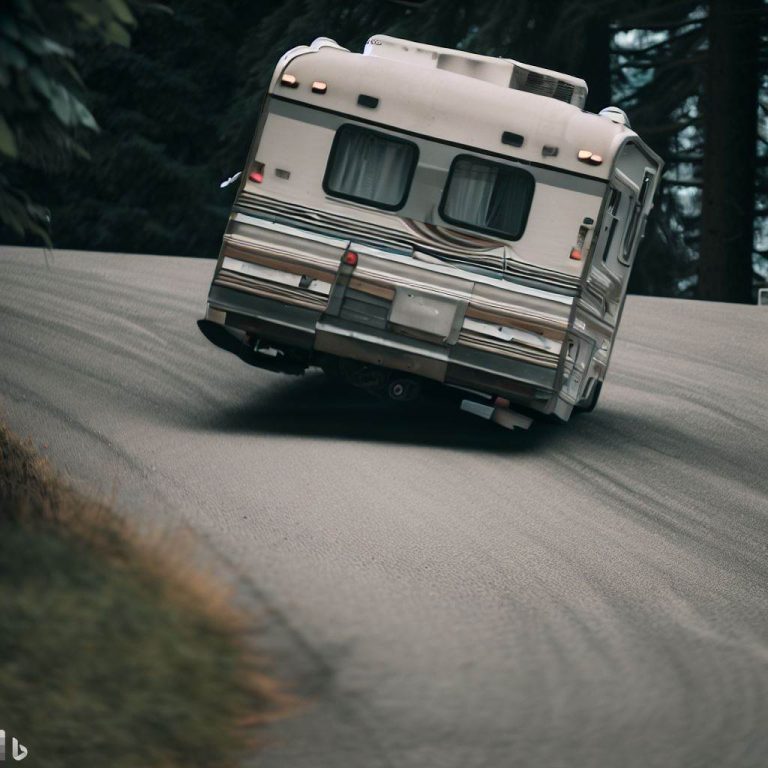
Uncovering RV Brake Problems: Signs and Solutions
Exploring the open road in your RV offers unparalleled freedom and adventure. However, ensuring your safety and the safety of others on the road is paramount. One of the most critical aspects of RV maintenance is taking care of your brakes. Brake problems can be not only inconvenient but also dangerous. In this comprehensive guide, we will delve into the signs that indicate potential RV brake problems and provide you with practical solutions to keep your journey worry-free and safe.
Understanding Your RV Braking System
Before we dive into identifying and addressing brake issues, let’s briefly explore the basic components of your RV’s braking system.
- Brake Pads and Rotors: These are the primary components responsible for slowing down and stopping your RV. Brake pads clamp onto the rotors, creating friction that slows the wheels.
- Calipers: Calipers house the brake pads and are responsible for applying pressure to them when you engage the brakes.
- Brake Fluid: Brake fluid transfers hydraulic pressure from the brake pedal to the calipers, allowing them to squeeze the brake pads against the rotors.
- Master Cylinder: The master cylinder is where you apply pressure when you press the brake pedal. It converts your foot’s force into hydraulic pressure that moves the brake fluid.
Signs of RV Brake Problems
Now, let’s explore the signs that may indicate issues with your RV’s brakes:
1. Squeaking or Squealing Noise: A high-pitched squeak or squeal when you apply the brakes can be an early sign of brake pad wear. Over time, the brake pad material wears down, and the built-in wear indicator starts making noise to alert you that it’s time for a replacement.
2. Grinding Noise: If you hear a grinding noise when braking, it likely means the brake pads have worn down to the point where they are damaging the rotors. This is a critical issue that should be addressed immediately.
3. Reduced Braking Performance: If you notice that it takes longer to stop your RV, or if you need to press the brake pedal harder to slow down, your braking system may have a problem. This could be due to worn brake pads, a brake fluid leak, or air in the brake lines.
4. Vibration or Pulsation: A vibrating or pulsating sensation in the brake pedal when you apply the brakes can indicate warped brake rotors. This issue can compromise braking performance and should be addressed promptly.
5. Warning Lights: Modern RVs are equipped with various warning lights on the dashboard. If your brake warning light comes on, it’s a clear sign that there’s a problem with the braking system, and you should have it checked immediately.
Solutions to Common RV Brake Problems
Now that you’re familiar with the signs of brake problems let’s discuss solutions to address these issues:
1. Replacing Brake Pads: If you hear squeaking or squealing when braking, it’s likely time to replace your brake pads. Consult your RV’s owner’s manual for the recommended replacement interval and consider using high-quality brake pads for optimal performance.
2. Rotor Resurfacing or Replacement: If you experience grinding noises or pulsations when braking, have a professional inspect your brake rotors. In some cases, they can be resurfaced to remove minor damage. However, severely damaged rotors may need replacement.
3. Brake Fluid Inspection and Replacement: Brake fluid should be inspected regularly for contamination and moisture. Brake fluid absorbs moisture over time, which can lead to decreased performance and corrosion in the braking system. If necessary, have your brake fluid replaced as part of your RV’s maintenance schedule.
4. Bleeding the Brake System: Air in the brake lines can lead to reduced braking performance. Bleeding the brake system removes air bubbles, ensuring your brakes function correctly. This is best done by a professional, but experienced RV owners can do it with the proper equipment and safety precautions.
5. Professional Inspection: If you’re experiencing any brake-related issues or if your warning light comes on, it’s crucial to have your RV inspected by a certified mechanic. They can diagnose the problem accurately and recommend the necessary repairs.
Preventive Maintenance Tips
Preventive maintenance is key to avoiding RV brake problems in the first place. Here are some tips to keep your braking system in top shape:
1. Regular Inspections: Make brake inspections a part of your regular maintenance routine. Look for wear and tear, and listen for unusual noises when braking.
2. Follow Manufacturer Recommendations: Adhere to your RV manufacturer’s recommended maintenance schedule, which often includes brake system checks and adjustments.
3. Weight Management: Be mindful of the weight you carry in your RV. Overloading can strain your brakes, leading to premature wear.
4. Brake Controller for Towing: If you tow a trailer or another vehicle behind your RV, use a brake controller to ensure the additional weight doesn’t strain your RV’s brakes.
Maintaining your RV’s braking system is essential for your safety and the safety of others on the road. By paying attention to signs of brake problems, promptly addressing any issues, and following preventive maintenance tips, you can ensure your RV’s brakes remain in top shape, providing you with reliable stopping power on your adventures. Remember, when in doubt, consult a professional mechanic to assess and repair any brake-related concerns, and always prioritize safety when it comes to your RV’s maintenance. Safe travels!